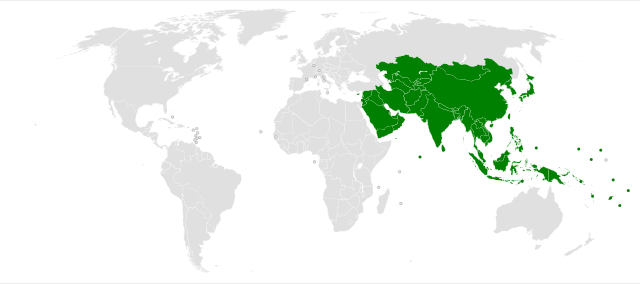Asia-Pacific countries lead the digital economy
Indonesia, Thailand, Malaysia, Taiwan, and the Philippines, the world's largest buyers. Mexico, the second nation that consumes more digital content. Fashion and beauty, the areas that have increased their profits; travel and lodging, down.

The pandemic accelerated and reconfigured the digitalization of the economy, generated competitiveness, and boosted the creation of new industries and services, which led countries in the Asia-Pacific region to lead the so-called "digital economy", said Virginia Valdivia Caballero, an academic at the Center for International Relations of the School of Political and Social Sciences (FCPyS).
Speaking at the series "Asian Perspectives of the Post-Pandemic. New Concepts for International Relations," she explained, "Although it is not general, because there are governments with different commitments, it is common to highlight connectivity and digitalization." The digital economy is in all areas of society, in this period of health emergency businesses have become more digital, or have moved to digitization, those who did not have suffered consequences.
According to the university, in the Asia-Pacific region, e-commerce has increased up to 90 percent, especially of people who have accessed retail businesses. In the top ten of the nations that buy the most globally, there are five nations in the region: Indonesia, Thailand, Malaysia, Taiwan, and the Philippines. Among the activities that increased their revenues are fashion and beauty, with 27 percent compared to 2019; the items that decreased are those related to travel, including lodging, which fell up to 51 percent in the orb.
Valdivia Caballero highlighted that the country that spends the most overall is South Korea; in the case of per capita spending online, China is followed by South Korea; both are above the global average. In the areas of banking and financial services, Thailand ranks number one and South Korea ninth; for credit cards, South Korea ranks third in the world. Regarding online payments through cell phones, Singapore is in the lead and China is in tenth place, said the specialist of the University Program of Studies on Asia and Africa (PUEAA) of the UNAM.
Ensures recovery
In terms of digital content, China ranks first; Mexico is the world's second-largest consumer of this service. Regarding food delivery, three Asian countries are in the top ten list: Indonesia is number one, Malaysia is third and Thailand is in tenth place. This confirms that the digital economy is the "new economy" because it has ensured financial recovery during the pandemic, through the use of technology.
However, said Virginia Valdivia, the digital divide has also widened, since four out of five people in developing countries are in rural areas, which lack access to the Internet. In addition, the "digital economy" has environmental consequences. The manufacture of more and more technological products and inputs irreversibly damages our environment. "From the mining industry to physical storage in data centers that, due to their size, require large amounts of electricity," she concluded.
Source: UNAM




